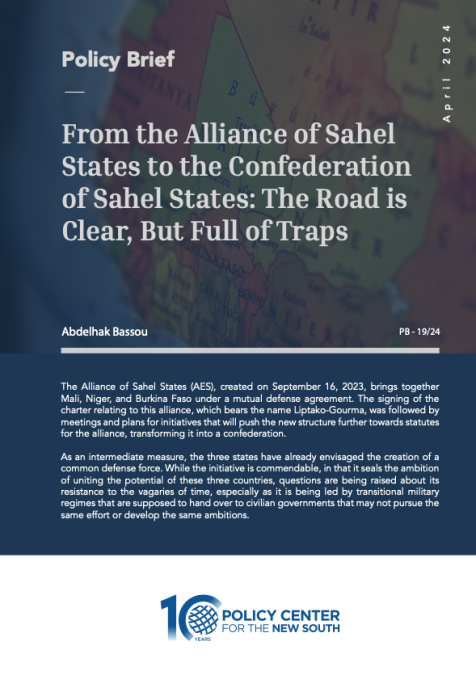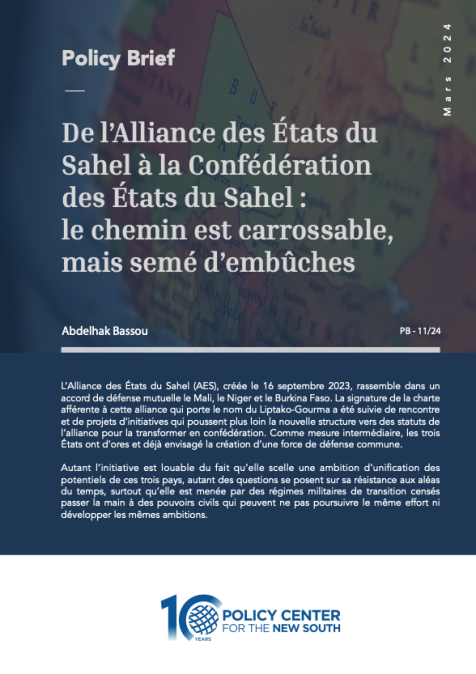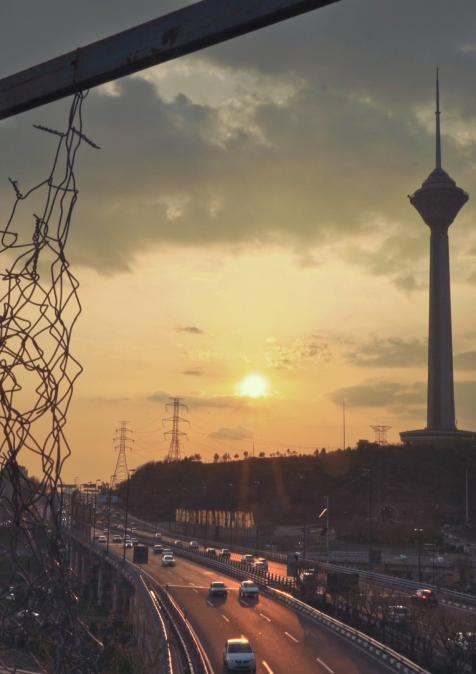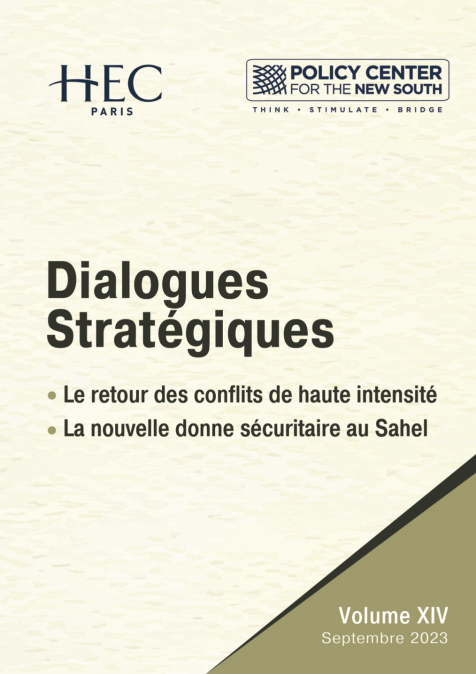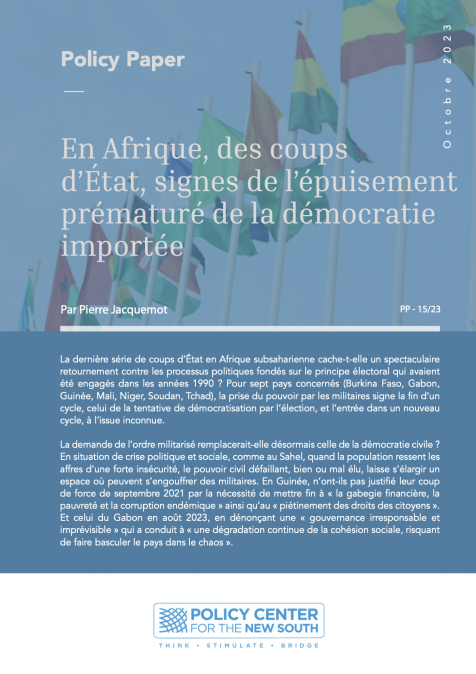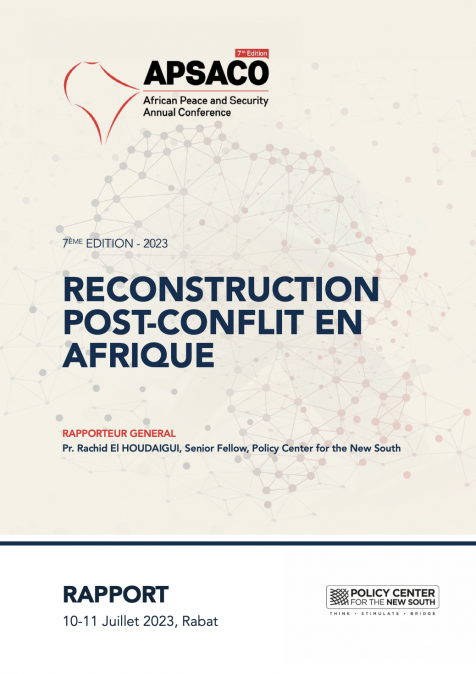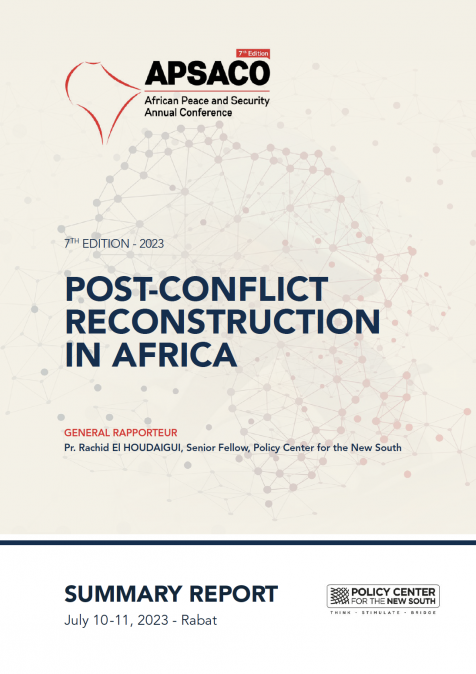Publications /
Opinion
In the space of one day in late July 2023, the fate of Mohamed Bazoum, 63, changed completely; the comfort of his palace was replaced by a small dark room. The occupant was reduced from president of the 27 million-strong nation of Niger to criminal, facing charges of high treason and undermining the security of the nation (Reuters, August 14, 2023). His accusers were a military junta, led by the commander of the Presidential Guard, General Abdourahamane Tchiani, now self-imposed President.
No army unit or police detachment tried to save Bazoum, who, before being elected head of state, had been appointed foreign and interior minister. The new rulers, united as the National Council for the Safeguard of the Homeland ignored the fact that Bazoum was a democratically elected leader, replacing his predecessor Mohammadou Issoufou, who stepped down after completing two five year terms in office. It had seemed a sign of democratic maturity, the replacement of one elected leader by another in a country that, since gaining independence from France in 1960, had had to deal with four so-called coups d’etat.
Bazoum, noted Reuters, inherited a security crisis and pledged to continue Issoufou’s policies of combating Islamist violence and tackling poverty in one of the world’s least-developed nations. Niger, threatened at its border with Burkina Faso by jihadists associated with al Qaeda and Islamic State, and near its southeastern border with Nigeria by the radical fighters of Boko Haram, strengthened its alliances with western powers under Bazoum, turning into a hub for French, American, German, and Italian forces, supported by a secret CIA base and drone units, slowly putting pressure on the terrorist movements.
Tchiani’s coup provoked Antonio Guterres, UN Secretary General, to demand the immediate and unconditional release of the imprisoned president (UN News, July 27, 2023). In Lagos, the Nigerian President Bola Ahmed Tinubu, chairman of the Economic Community of West African States (ECOWAS), insisted that ECOWAS would not tolerate another coup in the region and considered deploying troops into Niger to force the return of Monsieur Bazoum to his presidency. The junta of whom five members of the Niger military have been in the past trained by the US ,sent delegations to its neighbors and allies in Ouagadougou (Burkina Farsi), Bamako (Mali), and Conakry (Guinea), demanding military support for a possible armed showdown.
Rebels Dancing in the Streets
While military punishment was debated by the leaders of western African nations, and sanctions were introduced against the new rulers in Niamey, crowds of pro-junta activists danced in the streets of the capital, some waving Russian flags. “Niger coup supporters set fire to the ruling party HQ,” reported Reuters (July 27, 2023). Kenya’s President William Ruto qualified the coup as a “serious setback” for Africa, since suddenly African democracies seemed fragile. Military takeovers and so-called constitutional coups have returned during the last few years: seven African nations have had to deal with takeovers: Burkina Faso, Gabon, Guinea, Niger, Sudan, Chad, and Mali.
Ulf Laessing, head of the Sahel program of the Konrad Adenauer Foundation, previously based in Mali, deplored the coup in Niger as “a nightmare” for western powers active in the region (AP News, July 27, 2023), since they relied on Bazoum as “a new security anchor,” willing to stabilize the Sahel, a region crossed by migrants trying to reach Europe. “In our view, it is now highly likely that there will be further coups on the continent,” predicted the Stockholm-based International Institute for Democracy and Electoral Assistance (IDEA).“The coup in Niger like the others in the Sahel is in part a response to ongoing challenges with security, economic stability, poverty and international geopolitical competition for influence” (September 15, 2023).
“In Africa, coups d’etat, signs of the premature exhaustion of imported democracy” (En Afrique, des coups d’Etat, signes de l’épuisement prématuré de la democratie importée), Pierre Jacquemot, expert at the Jean Jaures Foundation, editorial member of the publication Afrique Contemporaine, and former French ambassador to Kenya, Ghana and the Democratic Republic of Congo, titled his Policy Paper, published by the Policy Center for the New South (October 13, 2023). He pointed in his detailed and convincing study to a “premature exhaustion of imported democracy.” For the author, the recent coups reveal a “spectacular reversal of the political process based on electoral principles initiated in the 1990s,” which, for Jacquemot, signals “the end of a cycle,” with unforeseeable results. The recent military takeovers are nothing less than “the death of an illusion,” based on the assumption that “each election would be a step forward, rapid and painful, yet always moving towards democracy.”
The Constitutional Coup
The results of elections in Africa are not necessarily crushed by ambitious, undemocratic military conspirators, but the democratic system is derailed by corruption and manipulation of members of parliament, government ministers, and heads of states. Importantly, according to Mukum Mbako in a Brookings report, Threats to democracy in Africa: the rise of the constitutional coup (October 30, 2020), although elections are critical to the transition of a country from authoritarianism to constitutional democracy, they can also serve as a tool for the survival of authoritarian governments. Regimes in countries including Cameroon, the Republic of Congo, and Equatorial Guinea have used elections to legitimize their leaders and remain in power indefinitely. “Changing the constitution to eliminate term and/or age limits for presidents and allow the incumbent to unconstitutionally extend his mandate has been referred to as ‘constitutional coup’,” wrote Mbako.
Foreign Affairs (January 17, 2019) deplored “the retreat of African democracy,” insisting “the autocratic threat is growing.” According to the African Center for Strategic Studies, since 2015, leaders of 13 African countries have evaded or overseen the further weakening of term-limit restrictions that have been in place. Examples include Togo, Uganda, Chad, Cameroon, Rwanda, and Egypt. Out of 486 attempted or successful military coups globally since 1950, Africa accounts for the largest number with 214, of which at least 106 have been successful (Aljazeera, August 30, 2023), based on data compiled by American researchers Jonathan M. Powell and Clayton L. Thyne. “At least 45 of the 54 nations across the African continent have experienced one single coup attempt since 1950. Narrowing the focus to only those countries that have experienced a successful takeover—one in which perpetrators hold power for at least seven days—that number drops to 37 or about two thirds of nations on the continent” (Voice of America, October 3, 2023). Fifteen of the 20 nations topping the 2022 Fragile States Index, created by Fund for Peace, are located in Africa, and 12 of those countries have experienced at least one successful putsch, as in Somalia, the Democratic Republic of Congo, Central African Republic, Chad, Sudan, and Zimbabwe. Conversely, there have been no successful coups in richer African countries with strong institutions, such as South Africa and Botswana.
For a constitutional democracy to survive, notes Brookings, “it must have a solid and politically active public, as well as political elites dedicated to maintaining the country’s constitutional institutions.” In 2021, UN Secretary General Guterres cited the main reasons for the recent increases in coups: strong geopolitical divides between nations, the COVID-19 pandemic’s economic and social impact on countries, and, finally, the UN Security Council’s inability to take strong measures in response to coups.
For example, in late 2021, Russia and China, both veto-holding members of the Security Council, blocked the imposition of fresh sanctions on Mali’s coup leaders after they announced delays in elections that would return the West African country to civilian rule, reported the Voice of America, recalling that before the recent spate of putsches, coups in Africa had been declining for much of the last two decades: “In the 10 years before 2021, there had been on average less than one successful coup for year, according to US researchers Jonathan Powell, formerly at the University of Central Florida and Clayton Tyne, at the University of Kentucky. The latest power grabs in Africa have raised concern that the region could be backpeddling from its progress towards greater democracy.”
Sudan counted since 1950 at least 18 attempted coups, of which six were successful, the last putsch dating from October 2021. Since 1966, Burkina Faso has survived nine military takeovers, the last two registered in 2022. Putsches might seem the most practical and fastest solution, since grievances often are not tackled by corrupt civilian governments, yet the success of the inexperienced new, uniformed, rulers, or rather the lack of it, is documented by facts. In Mali, where soldiers have been in power since 2022, Al-Qaida-affiliated and Islamic State-linked groups have almost doubled the territory they control in less than a year, the United Nations said in a September report, as they take advantage of a weak government and of armed groups that signed a 2015 peace agreement (Africanews, September 22, 2023). Niger’s rulers, who until now have avoided a military intervention by concerned neighbors, declared that they would hold on to power for at least three years and then would be ready for a national dialogue. Nigeria, Africa’s most populous nation, reported the Voice of America, in a coup study, had a long history of coups following independence in 1960, with eight coup attempts, of which six were successful. However, confirmed the Voice of America, “since 1999 the country has transferred power through democratic elections and helped usher in greater stability in West Africa and the continent as a whole.”
Retrogressive and Failing
Aondoaver Jacob Abur of the Department of Sociology, Federal University in Dutsin-Ma, Katsina State, Nigeria, an expert on democratization in Africa, wrote in a paper published in June 2018 (International Journal of Business, Administration and Management Research): “The Western model of democracy is considered by many Africans to be extremely narrow and even alien to African culture. Democracy is not just the right to vote and be voted for, but it is about a whole complex of rights and duties that citizens must exercise.” The author disagrees with some aspects of modernization and culturalist aspects offered to the African population: “Africa’s colonial experience displaced indigenous democratic practices and replaced them with dictatorship and subsequently western liberal democracy, which was and has continued to be alien, and as a consequence has been failing across the continent,” similar to ambassador Jacquemot’s analysis in his study published by the Policy Center for the New South. Abur argues that “the path to democratization in Africa must be home grown and outsiders should only help move the process forward.” Until the 1990s, the African intellectual recalled, most African countries were dominated by dictatorship, one-party and patrimonial states, a lack of transparency and accountability of the leaders, social inequalities and injustice, “all of which led to instability and civil wars along ethnic and religious lines.” Aondoaver Jacob Abur concluded that the democratization process in Africa coincided with the collapse of communism in the Soviet Union and the end of the Cold War. But, after more than 25 years of democratic experience in Africa, the practice can be summarized as having been rather “sloppy, haphazard, retrogressive and failing.”


